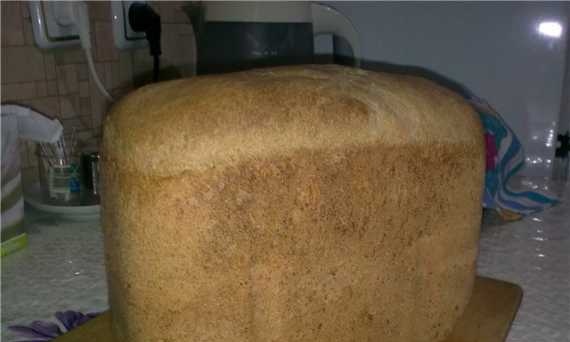Today "ultra-processed" foods account for half of all UK family purchases |
|
Exclusive Interview: Health Professionals Warn of Rising Popularity of Factory-Made Foods With Negative Effects: Obesity and Poor Health Half of all food bought by UK families is now “ultra-processed”, made in factories with additives and additives and created by food technologists that bear little resemblance to fruits, vegetables, meat or fish that were previously prepared at home. Research from 19 European countries, published in a special issue of Public Health Nutrition this month, found that British families buy more "ultra-processed" food than other families in Europe, accounting for 50.7% of their diet. Germany ranks second with 46.2% of the diet, followed by Ireland with 45.9% of the diet. More than half of the ultra-processed foods were purchased by the UK population. Family purchases of ultra-processed food in%. The data collection system analyzed the latest 2008 housing and food costs. They classified food into four groups. More than a quarter of meals (28.6%) were processed with little or no processing, 10.4% were processed with ingredients such as vegetable oil and 10.2% were processed naturally (cheese or jerky). The remainder is made up of ultra-processed foods. Professor Carlos Monteiro of the University of São Paulo in Brazil, who leads the research team, told the Guardian newspaper of his deep concern about the close link between ultra-processed foods and obesity or poor health. Ultra-processed foods may look attractive and be more desirable because of the sweeteners and preservatives, but Monteiro says there is nothing nutritious or healthy about these foods. “Let's take breakfast cereals. For example, Froot Loops are 50% sugar and no fruit ... ”Professor Monteiro told the Guardian [the actual figure is 41%]. "Ultra-processed food is inherently a new creation of the food industry with very cheap ingredients and a very attractive presentation." Separate figures obtained by the Guardian newspaper from Euromonitor show that the UK has the largest sales of ultra-processed products. Quick Start GuideSemi-finished products Mister Kipling, made by Premier Foods, tops the cake list. They also own the Bachelors, which specialize in dry prepared meals such as super noodles and cup soups. McVitty are the leading sweet cookie sellers. Kellogg owns breakfast cereals. Chocolate "Cadberies", chewing gum "Rigleys", sweets "Haribo" - the best varieties of confectionery. Lays, of the Pepsico company, is a popular seller of salty and savory snacks. These products are made with cheap ingredients and are produced on a massive scale, Monteiro says. For example, ultra-processed processed cheese is made with milk powder and additives. Some instant noodles aren't noodles at all, he added. “If you have instant noodles that are actually based on oil, starch and additives alone, then you are not eating real noodles. It's the same story with chicken nuggets - when you buy this ultra-processed chicken, you are buying a fake chicken, ”says the professor. This leads to two problems: people lack not only vitamins and minerals, but also biologically active substances - phytoestrogens and fiber, which are found in natural products. “Every day we eat a lot of flavors and emulsifiers, and we don’t think about what problems this can lead to,” says Carlos Monteiro. According to him, technical research on the use of additives and flavors dates back to the last century and focused on whether they cause cancer or not. Other cumulative effects of these industrial products are not yet known. “The honest answer is we don't know what's going on,” says Monteiro. Jean-Claude Mubarak, a professor of nutritional science at the University of Montreal Canada who works with Monteiro, told what they found.Ultra-processed foods “have a low total nutritional value with free sugars, sodium [salt], saturated fatty acids, and generally low in protein, vitamins and minerals. These foods are also high in calories. Their research shows that the phrase, repeated and promoted by factories and politicians, that “no bad food, there is too much food” is wrong. Professor Corinna Hawkes, director of food policy at City University of London and one of the leading researchers in the government-funded obesity research unit, agrees that we should try to reduce our dependence on ultra-processed foods. She cited the example of Pepsi's Walkers Sunbites, which sell popcorn as a complete, natural snack. “This is a classic formulation. They are fried with whole grains and vegetable oil. I don't think it does any good for the diet. Grab a slice of whole grain bread if you want a healthy snack. " And, according to her, we need changes in our culture of consumption, and children need to learn to love the taste of natural products, including bitter ones. Food companies said their products could be consumed as part of a balanced, healthy diet and that they were doing everything to enable consumers to make healthier purchases. Kellogg said Froot Loops are made from "natural grains, contain only natural colors" and are fortified with vitamins. Premier said the amount of sugar in Mr. Kipling's slices has been reduced. McVitty said he provided open information so people can make the right choices.
Shirshova M.S. |
| What is the ketogenic diet and who benefits from it | Is the sushi boom promoting the spread of tapeworm infection? |
|---|
New recipes







